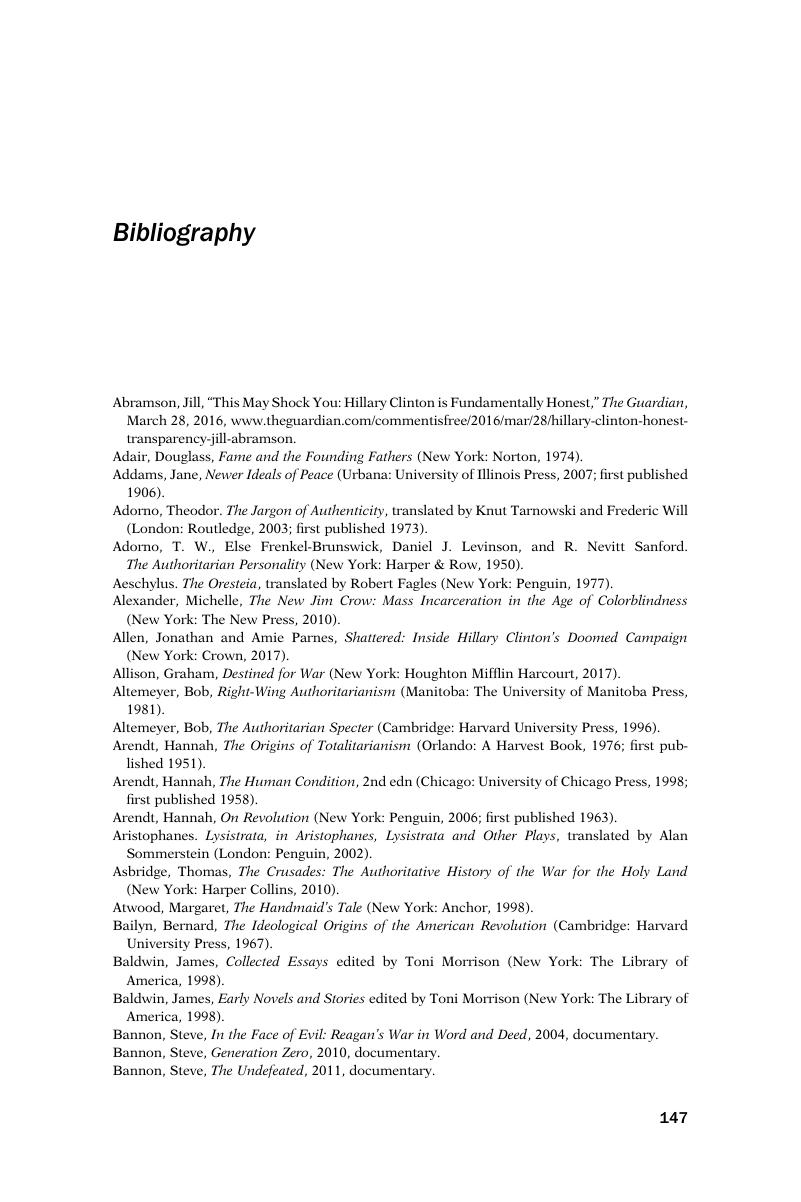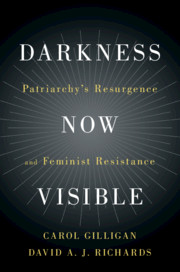Book contents
- Darkness Now Visible
- Darkness Now Visible
- Copyright page
- Dedication
- Epigraph
- Contents
- Acknowledgments
- Introduction
- 1 Patriarchy Comes Out of Hiding
- 2 Infidelity and Silence
- 3 Why Didn’t We See It?
- 4 Why Now?
- 5 The Endgame of Patriarchy?
- 6 Maps of Resistance
- 7 The Power and Invisibility of Gender
- 8 Democracy’s Future
- 9 Why Feminism and Why Now?
- Notes
- Bibliography
- Index
- References
Bibliography
Published online by Cambridge University Press: 20 July 2018
- Darkness Now Visible
- Darkness Now Visible
- Copyright page
- Dedication
- Epigraph
- Contents
- Acknowledgments
- Introduction
- 1 Patriarchy Comes Out of Hiding
- 2 Infidelity and Silence
- 3 Why Didn’t We See It?
- 4 Why Now?
- 5 The Endgame of Patriarchy?
- 6 Maps of Resistance
- 7 The Power and Invisibility of Gender
- 8 Democracy’s Future
- 9 Why Feminism and Why Now?
- Notes
- Bibliography
- Index
- References
Summary

- Type
- Chapter
- Information
- Darkness Now VisiblePatriarchy's Resurgence and Feminist Resistance, pp. 147 - 155Publisher: Cambridge University PressPrint publication year: 2018



